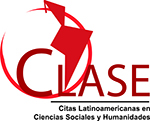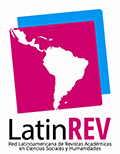The Internationalization of Religious Affairs
Abstract
The relationship between politics and religion has historically been characterized by its tension and complexity. Contrary to the thesis of secularism, religions have not disappeared; rather, they are said to have “returned from exile”. Recent consistent studies and initiatives have addressed new dynamics of religious actors in global governance. These new dynamics open new intersections between politics, law, and religions on the international and global stage. This article analyzes some of these dynamics that show, on the one hand, the internationalization of religious affairs; and, on the other hand, the role of religious actors in global governance to face global challenges.
Downloads
References
Annicchino, P. (Ed.). (2013). Freedom Of Religion Or Belief In Foreign Policy: Which One? En European University Institute. https://hdl.handle.net/1814/30059.
Appleby, R. S. (2000). The Ambivalence of the Sacred: Religion, Violence, and Reconciliation. Rowman & Littlefield.
Benedicto XVI. (2011). Mensaje para la celebración de la XLIV Jornada Mundial de la Paz. La libertad religiosa, camino para la paz. https://www.vatican.va/content/benedict-xvi/es/messages/peace/documents/hf_ben-xvi_mes_20101208_xliv-world-day-peace.html.
Berry, S. y Petito, F. (2018). Interreligious engagement and sustainable peace. The role of interreligious dialogue and collaboration in combatting intolerance and discriminations: mapping international initiatives and best practices. University of Sussex. https://hdl.handle.net/10779/uos.23464793.v1.
Calo, Z. (2009). The internationalization of church-state issues. En Duncan, A. W. y Jones, S. L. (Eds.), Church and State Issues in America Today: Religion and Government (pp. 135-164). Praeger Publishing.
Casanova, J. (2006). Rethinking Secularization: A global comparative perspective. The Hedgehog Review, 8(1-2), 7-22.
Casanova, J. (2014). Secularisation, religion and multicultural citizenship. En Weisse, W., Amirpur, K., Koers, A. y Vieregge, D. (Eds.), Religions and Dialogue: International Approaches (pp. 21-32). Waxmann Verlag. https://berkleycenter.georgetown.edu/publications/secularisation-religion-and-multicultural-citizenship#dflip-df_manual_book/1/.
Comisión Teológica Internacional. (2019). La Libertad Religiosa para el Bien de Todos. Aproximación Teológica a los Desafíos Contemporáneos. https://www.vatican.va/roman_curia/congregations/cfaith/cti_documents/rc_cti_20190426_liberta-religiosa_sp.html.
Concilio Vaticano II. (1965). Declaración Dignitatis Humanae sobre la libertad religiosa. https://www.vatican.va/archive/hist_councils/ii_vatican_council/documents/vat-ii_decl_19651207_dignitatis-humanae_sp.html.
Consejo de Derechos Humanos de las Naciones Unidas. (2018). Report on State-religion relationships and their impact on freedom of religion or belief A/HRC/37/49. https://www.ohchr.org/en/calls-for-input/report-state-religion-relationships-and-their-impact-freedom-religion-or-belief.
Consejo de Derechos Humanos de las Naciones Unidas. (2023). A/HRC/52/38: Panorama de la libertad de religión o de creencias Informe de la Relatora Especial sobre la libertad de religión o de creencias, Nazila Ghanea. https://documents-dds-ny.un.org/doc/UNDOC/GEN/G23/006/36/PDF/G2300636.pdf?OpenElement.
Cox, B. y Philpott, D. (2003). Faith-Based Diplomacy: An Ancient Idea Newly Emergent. The Brandywine Review of Faith & International Affairs, 1(2), 31-40. https://doi.org/10.1080/15435725.2003.9523161.
Deneulin, S. y Rakodi, C. (2011). Revisiting religion: Development studies thirty years on. World Development, 39(1), 45-54. http://www.povertystudies.org/TeachingPages/EDS_PDFs4WEB/Deneulin_Revisiting%20Religion:%20Development%20Studies%2030%20Yrs%20On.pdf.
Eisenstadt, S. N. (2000). Multiple Modernities. Daedalus, 129(1), 1-29. https://www.jstor.org/stable/i20027610.
Francisco. (2020). Carta Encíclica Fratelli Tutti del Santo Padre Francisco sobre la fraternidad y la amistad social. Libreria Editrice Vaticana. https://www.vatican.va/content/francesco/es/encyclicals/documents/papa-francesco_20201003_enciclica-fratelli-tutti.html.
Francisco. (2021). Primer Día Internacional de la Fraternidad Humana. Videomensaje del Santo Padre Francisco. Libreria Editrice Vaticana. https://www.vatican.va/content/francesco/es/messages/pont-messages/2021/documents/papa-francesco_20210204_videomessaggio-giornata-fratellanza-umana.html.
Francisco y Al-Tayyeb, A. (2019). Documento Sobre la Fraternidad Humana por la Paz Mundial y la Convivencia Común. Libreria Editrice Vaticana. https://www.vatican.va/content/francesco/es/travels/2019/outside/documents/papa-francesco_20190204_documento-fratellanza-umana.html.
Ferrara, P. (2010). Religione e relazioni internazionali: un inquadramento metodologico per una diplomazia consapevole. Quaderni di Relazioni Internazionale, 12, 48-49. https://www.ispionline.it/sites/default/files/pubblicazioni/qri12_0.pdf.
Fox, J. y Sandler, S. (2004). Bringing Religion Into International Relations (1a ed.). Palgrave Macmillan.
Fukuyama, F. (2018). Identity: Contemporary Identity Politics and the Struggle for Recognition (1a ed.). Profile Books Ltd.
Gilles, K. ([1991] 1994). The Revenge of God: The Resurgence of Islam, Christianity and Judaism in the Modern World (Trad. A. Braley). Polity.
Habermas, J. (2006). Religion in the Public Sphere. European Journal of Philosophy, 14(1), 1-25. https://doi.org/10.1111/j.1468-0378.2006.00241.x.
Harari, Y. N. (2019). 21 Lecciones para el siglo XXI (Trad. J. Ros, 6a ed.). Debate.
Haynes, J. (2013). Faith-based Organisations at the United Nations. Religiowest European University Institute, (70). http://hdl.handle.net/1814/28119.
Huntington, S. (1993). The clash of civilizations? Foreign Affairs, 72(3), 22-49.
Huntington, S. ([1996] 2015). El Choque de Civilizaciones y la Reconfiguración del Orden Mundial (Trad. J. P. Tosaus Abadía, 1a ed.). Paidós.
Hatzopoulos, P. y Petito, F. (2003). Religion in International Relations: The Return from Exile. Palgrave MacMillan.
Kulbálková, V. (2009). A “turn to religion” in international relations? Perspectives Review of International Affairs, 17(2), 13-41.
Ministerio de Interior. (2017). Política pública integral de libertad religiosa y de cultos. República de Colombia. https://personeriasiglesiascolombia.com.co/wp-content/uploads/2022/03/Documento-tecnico-politica-publica-de-libertad-religiosa-y-de-cultos-2.pdf.
Ministerio de Interior. (2018). Decreto 437. Política Pública Integral De Libertad Religiosa y De Cultos. República de Colombia https://derechoyreligion.uc.cl/en/centro-de-documentacion/internacional/normas-juridicas-2/1254-decreto-437-de-2018-de-la-presidencia-por-el-cual-incorpora-un-capitulo-denominado-politica-publica-integral-de-libertad-religiosa-y-de-cultos-al-unico-reglamento-del-sector-administrativo-del-interior/file.
Ministerio de Interior y Programa de las Naciones Unidas para el Desarrollo. (2019). Informe final de caracterización del sector religioso de Cundinamarca en el marco de la política pública integral de libertad religiosa y de cultos y su aporte a la agenda 2030 - Objetivos de Desarrollo Sostenible - ODS. República de Colombia. https://personeriasiglesiascolombia.com.co/wp-content/uploads/2022/03/Informe-final-de-caracterizacion-del-sector-religioso-de-Cundinamarca-1.pdf.
Naciones Unidas, Asamblea General. (1948). Declaración Universal de Derechos Humanos. https://www.refworld.org.es/docid/47a080e32.html.
Naciones Unidas, Asamblea General. (1966a). Pacto Internacional de Derechos Civiles y Políticos. Adoptado y abierto a la firma, ratificación y adhesión por la Asamblea General en su resolución 2200 A (XXI), 16 de diciembre de 1966. https://www.refworld.org.es/docid/5c92b8584.html.
Naciones Unidas, Asamblea General. (1966b). Pacto Internacional de Derechos Económicos, Sociales y Culturales. Adoptado y abierto a la firma, ratificación y adhesión por la Asamblea General en su resolución 2200 A (XXI), 16 de diciembre de 1966. https://www.refworld.org.es/docid/4c0f50bc2.html.
Naciones Unidas, Asamblea General. (1981). Declaración sobre la eliminación de todas las formas de intolerancia y discriminación fundadas en la religión o las convicciones. https://www.ohchr.org/es/instruments-mechanisms/instruments/declaration-elimination-all-forms-intolerance-and-discrimination#:~:text=Art%C3%ADculo%204-,1.,%2C%20pol%C3%ADtica%2C%20social%20y%20cultural.
Naciones Unidas, Asamblea General. (2020). A/Res/75/200. Resolución aprobada por la Asamblea General el 21 de diciembre de 2020: Día Internacional de la Fraternidad Humana. En la 47ª Sesión Plenaria. https://digitallibrary.un.org/record/3896456?ln=es.
Naciones Unidas, Asamblea General. (2023). Fraternidad humana para la paz y la cooperación. https://www.un.org/es/observances/human-fraternity.
Neo, J. y Scharffs, B. (2020). Law and politics of freedom of religion in comparative perspective. The University of Western Australia Law Review, 47(1), 1-14. https://www.law.uwa.edu.au/__data/assets/pdf_file/0009/3443364/1.-Scharffs-and-Neo-Introduction.pdf.
Organización de los Estados Americanos. (1969). Convención Americana sobre Derechos Humanos “Pacto de San José de Costa Rica”. https://www.refworld.org.es/docid/57f767ff14.html.
OSCE/ODIHR. (2019). Libertad de religión o de creencias y seguridad. Manual de orientaciones. Oficina de Instituciones Democráticas y Derechos Humanos. https://www.osce.org/files/f/documents/7/f/471369.pdf.
Petito, F. (2009). Dialogue of civilizations as an alternative model for world order. En Michael, M. S. y Petito, F. (Eds.), Civilizational Dialogue and World Order (pp. 47-67). Palgrave Macmillan.
Petito, F., Philpott, D., Ferrari, S. y Birdsall, J. (2016). [Policy Brief] FoRB – Recognising our differences can be our strength: enhancing transatlantic cooperation on promoting Freedom of Religion or Belief. University of Sussex. https://hdl.handle.net/10779/uos.23446415.
Philpott, D. (2013). Religious Freedom and Peacebuilding: May I Introduce You Two? The Review Of Faith & International Affairs, 11(1), 31-37. https://doi.org/10.1080/15570274.2012.760977.
Programa de las Naciones Unidas para el Desarrollo. (2019). La Contribución de las Organizaciones Basadas en la fe a la Agenda 2030 para el desarrollo sostenible en Argentina. https://www.undp.org/es/argentina/publications/la-contribucion-de-las-organizaciones-basadas-en-fe-la-agenda-2030-para-el-desarrollo-sostenible-en-argentina.
Roy, O. (2010). Religious revival as a Product and tool of globalization. Quaderni di Relazioni Internazionale, (10), 22-34. https://www.ispionline.it/sites/default/files/pubblicazioni/qri12_0.pdf.
Thomas, S. (2005). The Global Resurgence of Religion and the Transformation of International Relations: The Struggle for the Soul of the Twenty-First Century. Palgrave Macmillan.
Thomas, S. (2010). Religious and global security. Religions Quaderni di Relazioni Internazionale, (12), 4-21. https://www.ispionline.it/sites/default/files/pubblicazioni/qri12_0.pdf.
Twining, W. ([2009] 2010). Implicaciones de la globalización para el derecho como disciplina. Anales de la Cátedra Francisco Suárez, (44), 341-368. https://revistaseug.ugr.es/index.php/acfs/article/view/511/601.
United Nations Interagency Task Force on Religion and Sustainable Development. (2022). 2021 Annual Report of the United Nations Interagency Task Force on Religion and Sustainable Development: Engaging with Religion and Faith-based Actors on the 2030 Sustainable Development Agenda. https://wedocs.unep.org/20.500.11822/40850.
Copyright (c) 2023 Elena López Ruf

This work is licensed under a Creative Commons Attribution-NonCommercial-NoDerivatives 4.0 International License.
This license allows the copy, distribution, exhibition and representation of the work provided authorship is acknowledged and the work is properly quoted. Commercial use of the original work or the generation of derived works are not allowed.
The authors hereby guarantee the right to the first publication of the work to the Revista Política Austral.




































